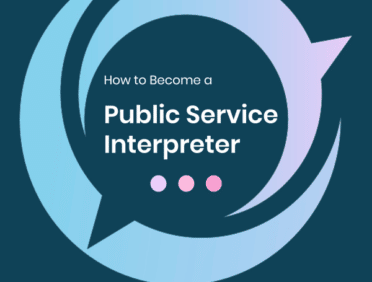There are lots of sectors and areas of life that are going to require the service of an interpreter. This is because people from all walks of life are able to live and work in the UK, and whilst many can speak the English language. However, there are also some that can’t.
This is where the interpreter service is a key part of the local Government. But what do they do, and why are they used?
How do you become an interpreter for the Government?
If you are someone who wants to become an interpreter within the public service, or the Government, then securing a job within this sector can be different to securing an interpreter job in other sectors and industries.
However, much like other roles, you will need to look out for jobs that are advertised through any local media, which will put you in the right direction of becoming an interpreter for the Government.
Why do local Government use interpreters?
Many of the people who need to access the services that the local government offer will not have English as their first language; or be able to speak English at all. This means that they are going to find it difficult to understand what is being said to them and then be able to give appropriate answers to any questions that they are being asked.
Having an interpreter with them means that they can properly understand what is being said to them and then be able to respond in the correct way.
What education and qualifications do interpreters need?
In order to work within the Government (or any other public service) as an interpreter, there is a good chance that you are going to need to have a professional qualification that relates to the work that you wish to do.
This includes qualifications from the Chartered Institute of Linguists as well as a Diploma in Public Service Interpreting. Both of these qualifications can help you to get a job within one of the government departments interpreting. However, it is also worth noting that many departments and sectors will also want to see relevant work experience.
What experience do interpreters need?
When you are looking to work as an interpreter, you are going to need to be able to speak, to a fluent level, at least two languages. It is important to have a deeper understanding of at least one of these languages, if not two.
This is because many of the things that are to be said will need someone who is able to understand the overall culture and what things might be inferred by the person who is speaking.
What qualities an interpreter needs?
There are a number of qualities that an interpreter is going to need when they are working within a government role. For the most part, they are going to need to be someone who is dedicated to their role and who wants to help people who may find it hard to understand or even just get by in a new country.
An interpreter is usually someone who is confident and is able to talk to all sorts of people.
Skills required to be an interpreter
In order to be an interpreter within the public sector, you are going to need to have certain skills. These will help you to be a high-quality interpreter and offer the very best in service to those who need help.
Ability to accept criticism
One thing that you are going to need to have as an interpreter is the ability to accept criticism. We all have things that we can do better, and a way to improve is a way to make yourself better. It can be hard to hear negative things about something that you do, but you should always be able to remember that it is not personal.
Ability to remain calm
There may be times when you work as an interpreter when the situation can be fraught and tense. This means that you are going to need to stay calm. If you find yourself getting worked up, then it may be much harder for you to listen to what is being said or relay it to the other person.
Ability to work on your own
Whilst the work of an interpreter is going to involve other people, for the most part, you will be working alone. The ability to work on your own is a key aspect of an interpreter, and it is definitely something that you need to get used to doing. It can be hard to be motivated when you are working under your own steam, and this is something that you are going to need to be able to do.
Be empathetic
We never know what other people are going through or what they have been through in their life. This means that we should approach everybody with empathy. When you are working within the Government, there are likely to be times when the situation or circumstances are making it harder to interpret what is being said, or you may need to deliver bad news in as positive a way as possible.
Be patience
It can take time for someone to understand what is being said, what is happening and to be able to then respond to this in the correct way. You need to remain as patient as possible with the person concerned whilst they do their best to understand the situation and not get frustrated when it takes them time.
Be thorough
You should never assume that someone understands what is being said just by giving some vague information. It is much better to be as thorough as possible when it comes to interpretation. You don’t want to leave anything open to interpretation, as this is when misunderstandings can occur. It is better to ensure that everyone understands the key information and that they are fully informed.
Flexible
Whilst we have already mentioned that much of the work that you will do as an interpreter will be the same, it will be with different people and with different information being interpreted. This means that you are going to need to be flexible. You are going to need to be able to work with a variety of different people in a variety of circumstances, and you should meet each one with the same level of enthusiasm.
Good foreign language skills
One of the most obvious skills that an interpreter needs to have is foreign language skills. You need to be able to understand what is being said in one language and then change this to the other language. This includes covering local dialects and using certain vocab too.
Good listener
In order to be able to deliver the right information in the right way, you are going to need to be able to listen and really hear what is being said. No matter if it is something that you have any prior knowledge about.
Good verbal communication skills
Much of the work that you will be doing as an interpreter is communication. This means that you need to have a good level of verbal communication skills. You need to feel comfortable communicating with a variety of people and be able to differentiate by what types of communication are going to be needed and when this is going to be appropriate.
IT literate
Some of the work that you are going to be doing as an interpreter is going to be online. You will speak to people virtually. This means that you need to be able to use a computer and be able to easily log into a variety of software and communication tools too.
Knowledge of English language
One of the languages that you are going to need to be able to speak as an interpreter in the UK government is English. Having a good level of knowledge when it comes t the English language will really help you to be able to deliver important information and ensure that the other person understands it.
Pay attention to detail
As we have already covered, being thorough is an important part of being an interpreter. This means that you need to be able to pay attention to the detail, even the smallest of details. Doing this will help you to understand what is being said and then ensure that you pass this on.
Work well under pressure
Working as an interpreter can be highly pressurised. The last thing that you are going to want to do is to start to worry, panic or lose focus at this time. Therefore, it is important that you are able to work well under pressure and not let it have an impact on the work that you do and the service that you provide.
What type of work are interpreters required to do?
The role of an interpreter can be incredibly varied and will depend on which industry or sector you are working within. You should be prepared to undertake a variety of interpreting projects, and whilst the context or the client may be different, what you do will be largely the same.
You will be present for conversations, either online, on the phone or in person. You will then, in real-time, translate what is being said and then relay this information back to the other person. You will need to do this in a way that is going to help them to understand what is being said to them and all without losing the flow of the conversation too.
What hours do interpreters work?
The hours of an interpreter will really depend on the work that they do and the place where they are employed. However, within the government sector, this will usually be within the standard working hours.
That said, there may be situations and times when you are asked to work outside of these hours, perhaps to provide emergency support where required.
Working environment
Much like the working hours, the environment that an interpreter can expect to work in within the Government is going to be an office setting. This will usually be on the premises of whichever government department that you work for.
Additionally, you may find that you will need to work outside of the standard premises, depending on what type of job you have taken on.
Career path and progression
When you work as an interpreter, there are a few career paths that you can take. This largely depends on whether or not you are happy to stay working in the same place. For many interpreters, when the time has come to move on, they will look at working for themselves as a freelancer.
They could then move n to set up their own agency, hiring other interpreters to work with them and deliver a more comprehensive service.
Another career path that an interpreter can take is to move into teaching, relating to the language that they speak. This could be in a variety of educational institutions and depend on their own end goals.
Training and development
In order to ensure that you are the very best interpreter that you can be, it is important to regularly look at the relevant training and development that you can complete. There are a number of courses out there that are designed to help interpreters to upskill and to move through their chosen careers.
You may also want to build on your personal skills and be able to grow in those softer skills that will help not only in your current career path but in the future too.
To download a .pdf of this blog, please click here












